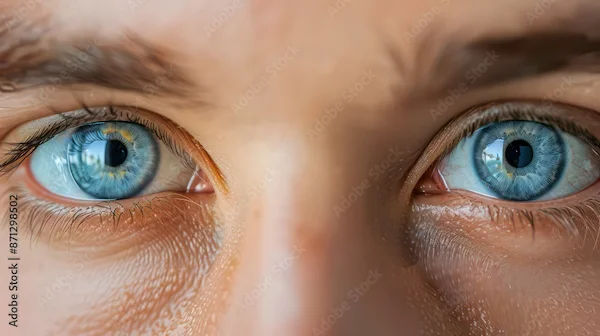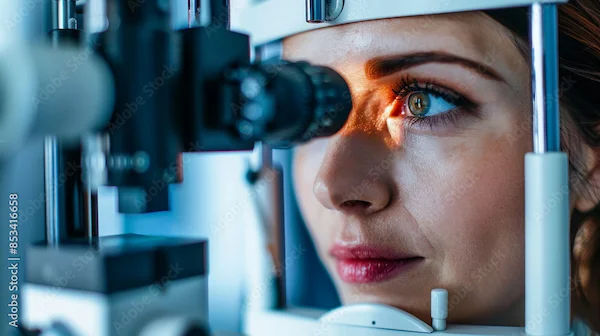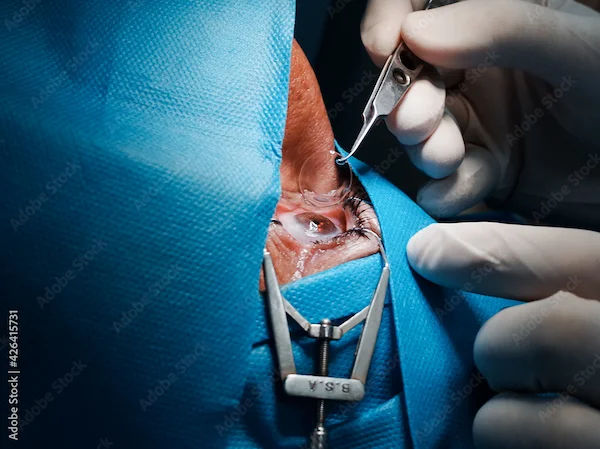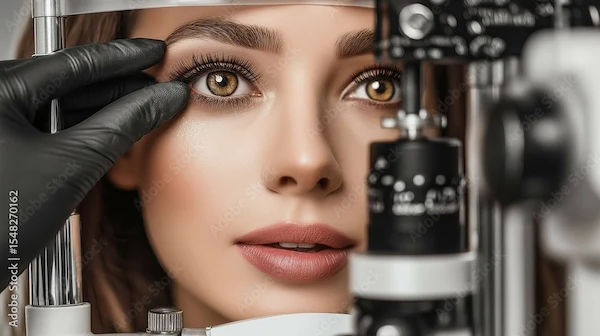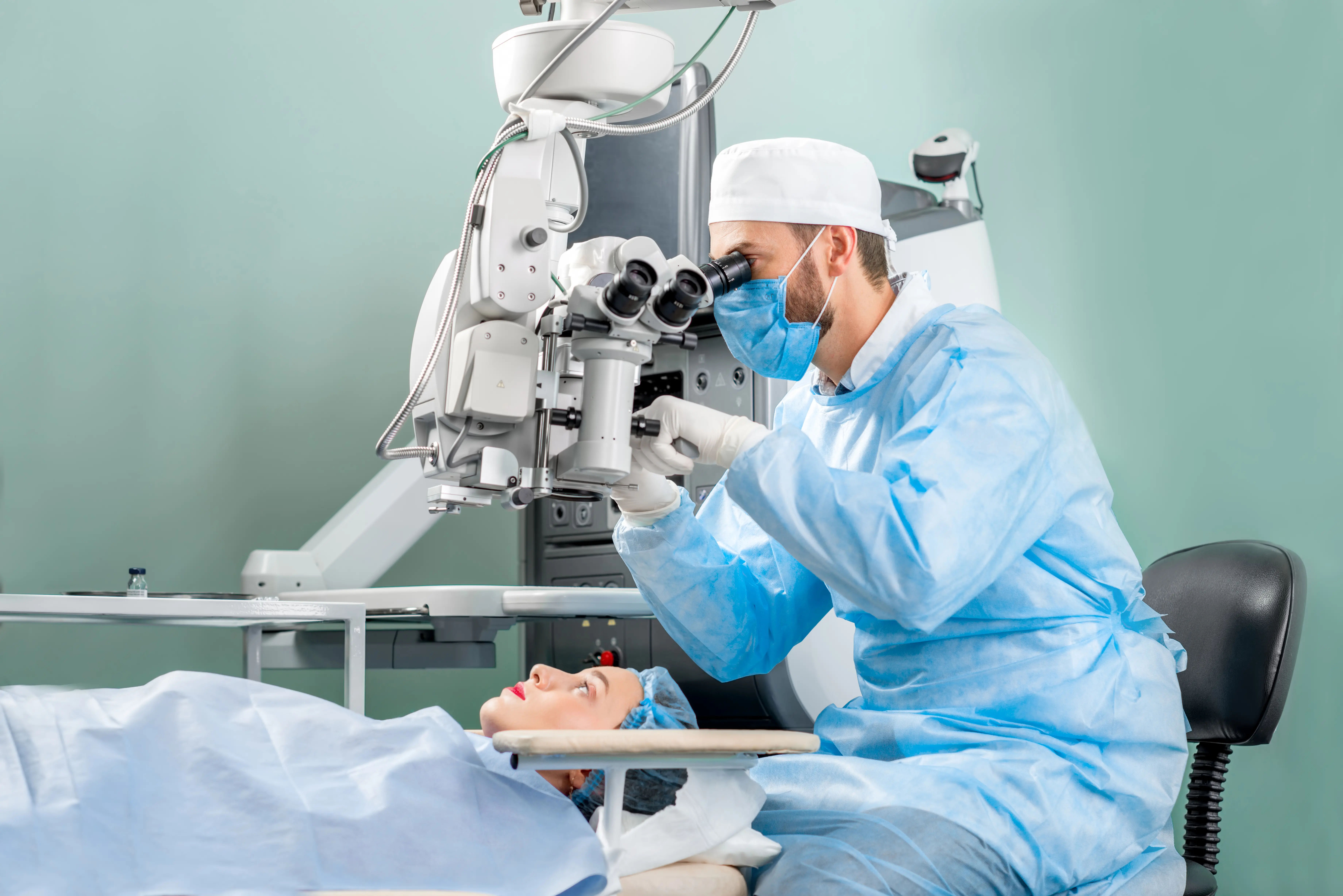Accidentally Rubbed Eyes 3 Days After Cataract Surgery: Know If It’s a Concern
Accidentally rubbed your eyes 3 days after cataract surgery? Find out if it’s a cause for concern, what symptoms to watch for, and when to contact your eye doctor for a safe recovery.

Written by
Last updated on 13th Jan, 2026

Introduction
Cataract surgery is a common and generally safe procedure that helps restore clear vision by replacing a cloudy lens with an artificial one. However, proper post-operative care is crucial for a smooth recovery. If you’ve accidentally rubbed your eye just a few days after surgery, you might be worried about potential complications. Don’t panic—let’s understand what could happen and what steps you should take next.
Why Is Rubbing Your Eye After Cataract Surgery a Concern?
After cataract surgery, your eye is in a delicate healing phase. The incision made during the procedure needs time to close, and the internal structures must stabilise. Rubbing your eye too soon can:
- Increase the risk of infection: Introducing bacteria from your hands.
- Dislodge the intraocular lens (IOL): The artificial lens may shift if pressure is applied.
- Cause irritation or injury: The cornea (front part of the eye) is still healing and can be easily scratched.
- Lead to increased eye pressure: This may slow down healing or cause discomfort.
What Should You Do If You’ve Rubbed Your Eye?
If you’ve accidentally rubbed your eye, follow these steps:
1. Stop Immediately: Avoid further rubbing or touching the eye.
2. Wash Your Hands: Use soap and water to prevent any contamination.
3. Use Prescribed Eye Drops: If your doctor has given you antibiotic or anti-inflammatory drops, use them as directed to prevent infection and reduce irritation.
4. Check for Symptoms: Look out for:
- Increased redness
- Pain or discomfort
- Blurred or worsening vision
- Sensitivity to light
- Excessive tearing or discharge
5. Avoid Pressing on the Eye: Be gentle when applying eye drops or cleaning the area.
6. Contact Your Eye Doctor: If you experience any concerning symptoms, call your surgeon immediately.
Consult Top Specialists for Personalised Tips
When to Seek Immediate Medical Attention?
While minor rubbing may not always cause serious harm, certain signs require prompt medical attention:
- Sudden vision loss or severe blurring
- Sharp pain in the eye
- Visible swelling or bleeding
- Feeling like something is stuck in the eye
- Excessive discharge or pus
If you notice any of these, visit your eye specialist or an emergency eye clinic right away.
How to Prevent Rubbing Your Eye After Surgery?
To avoid accidental rubbing, follow these precautions:
- Wear the Protective Shield: Your doctor may provide a shield to wear at night; use it as instructed.
- Be Mindful of Habits: If you tend to rub your eyes when tired or out of habit, consciously avoid doing so.
- Use Artificial Tears: If your eye feels itchy or dry, lubricating drops (as recommended by your doctor) can help.
- Keep Hands Clean: Wash hands frequently to reduce infection risk.
- Avoid Dust and Irritants: Stay away from smoky or dusty environments that may trigger itching.
Recovery Tips After Cataract Surgery
To ensure a smooth recovery:
- Follow Medication Instructions: Use prescribed eye drops on time.
- Avoid Strenuous Activities: No heavy lifting, bending, or swimming for a few weeks.
- Wear Sunglasses: Protect your eyes from bright light and UV rays.
- Attend Follow-Up Appointments: Let your doctor monitor healing progress.
Conclusion
Accidentally rubbing your eye after cataract surgery can be concerning, but most minor incidents don’t lead to serious complications. The key is to stay calm, monitor for symptoms, and follow up with your doctor if needed. Proper care and precautions will help your eye heal safely.
Consult Top Eye Surgeon
Consult Top Specialists for Personalised Tips

Dr. Karan Paswan
Ophthalmologist
7 Years • MBBS,MS (Ophthalmology)
Kolkata
VDC Clinic, Kolkata

Dr. Zennat Tajmin Shah
Ophthalmologist
24 Years • MBBS,DNB (Ophthalmology)
Kolkata
Titanium Eye Care, Kolkata

Dr. Ranjana Mithal
Ophthalmologist
41 Years • MBBS, MS
Delhi
Apollo Hospitals Indraprastha, Delhi

Dr. Shivani Grover
Ophthalmologist
9 Years • MS (Ophthalmology), Fellowship Cataract, Squint & Paediatric Ophthalmology
Lucknow
Apollomedics Super Speciality Hospital, Lucknow

Dr Monica Gour
Ophthalmologist
9 Years • MS(Ophthalmology) Fellowship in Cornea
Lucknow
Apollomedics Super Speciality Hospital, Lucknow
Consult Top Eye Surgeon

Dr. Karan Paswan
Ophthalmologist
7 Years • MBBS,MS (Ophthalmology)
Kolkata
VDC Clinic, Kolkata

Dr. Zennat Tajmin Shah
Ophthalmologist
24 Years • MBBS,DNB (Ophthalmology)
Kolkata
Titanium Eye Care, Kolkata

Dr. Ranjana Mithal
Ophthalmologist
41 Years • MBBS, MS
Delhi
Apollo Hospitals Indraprastha, Delhi

Dr. Shivani Grover
Ophthalmologist
9 Years • MS (Ophthalmology), Fellowship Cataract, Squint & Paediatric Ophthalmology
Lucknow
Apollomedics Super Speciality Hospital, Lucknow

Dr Monica Gour
Ophthalmologist
9 Years • MS(Ophthalmology) Fellowship in Cornea
Lucknow
Apollomedics Super Speciality Hospital, Lucknow
